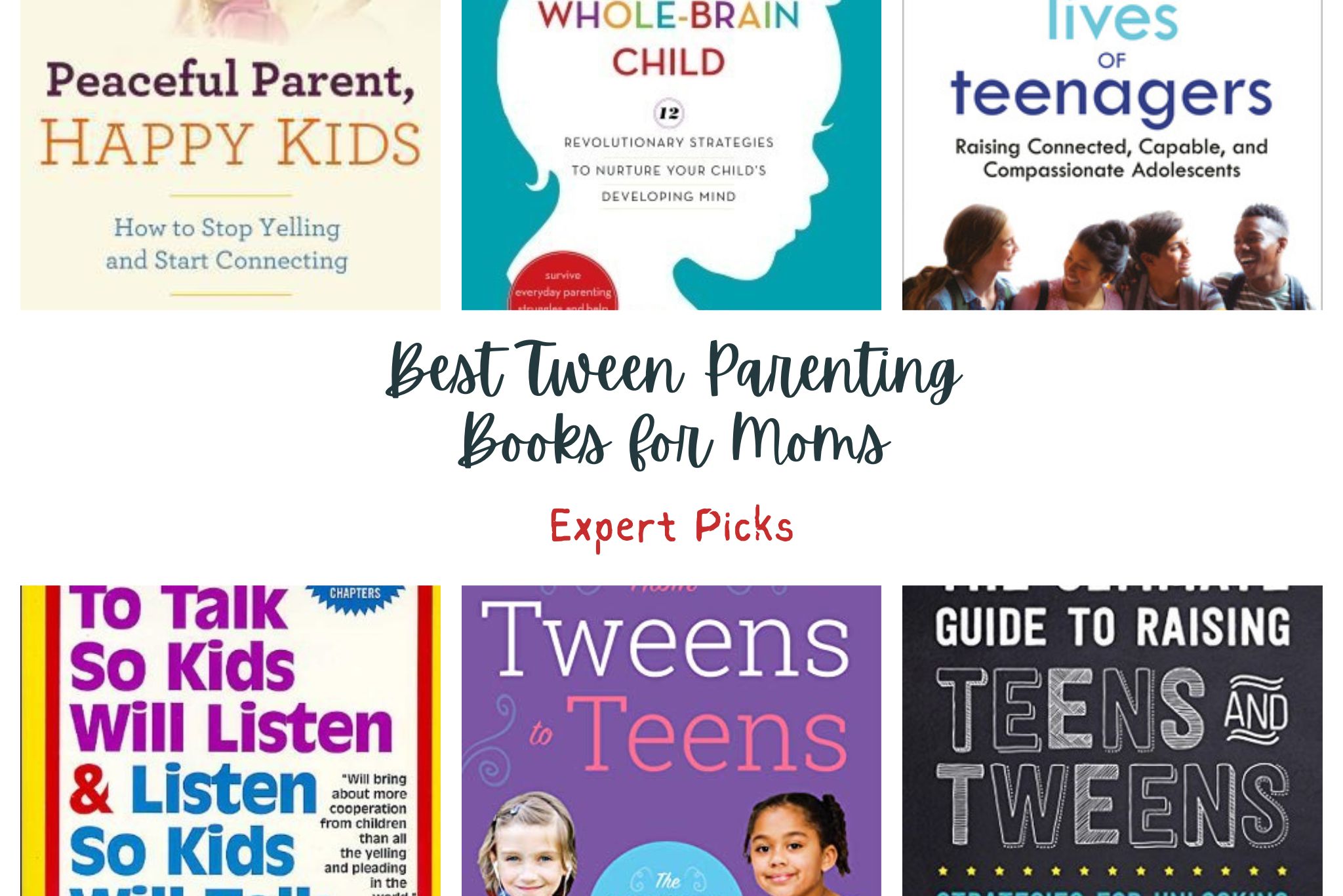Parenting tweens can be both rewarding and challenging, and having the right resources at hand can make all the difference. As a mom navigating the journey of raising tweens, finding expert advice and guidance tailored to this unique stage of development is invaluable. In this article, we’ve curated a list of the best tween parenting books recommended by experts in the field. From understanding the transition from childhood to adolescence to practical strategies for positive parenting, these books offer insights and strategies to help moms navigate the tween years with confidence.
1. The Everything Tween Book: A Parent’s Guide to Surviving the Turbulent Pre-Teen Years
by Dr. Linda Sonna
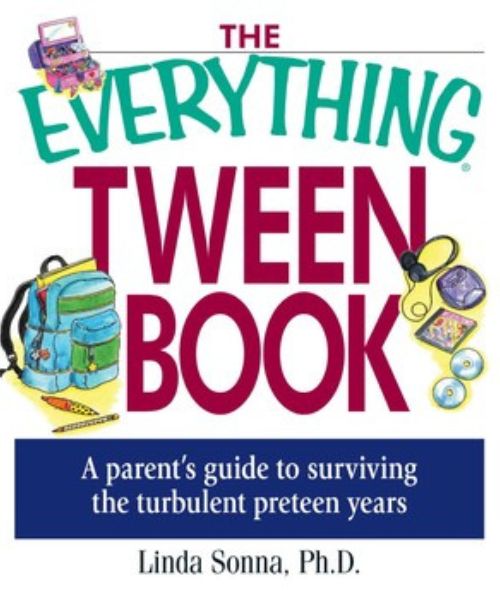
“The Everything Tween Book” is a lifeline for parents in the tween tornado. Dr. Sonna’s wisdom is both reassuring and practical. Yes, it’s a tad outdated here and there, but the core advice stands strong.
As parents, we’ve all been there—the tween years, that delicate phase between childhood and adolescence. Dr. Linda Sonna, a child psychologist, steps in as our guide.
Key Takeaways:
Navigating Challenges: From makeup to boys, these pre-teens surprise us with their rapid growth. Dr. Sonna tackles serious issues like eating disorders and school violence.
Psychological Insights: The book dives into your child’s psychological, social, and emotional needs. It’s like having a decoder for their mysterious behavior.
Practical Tips: Worried about sibling spats or peer pressure? Fear not! The book arms you with professional advice to survive the worst conflicts.
As your kids hit 11 or 12, you will feel better prepared—less scared. The book covers everything from discipline to health, making sure you stay sane while your tween blossoms.
2. No Longer Little: Parenting Tweens with Grace and Hope
by Hal Young and Melanie Young
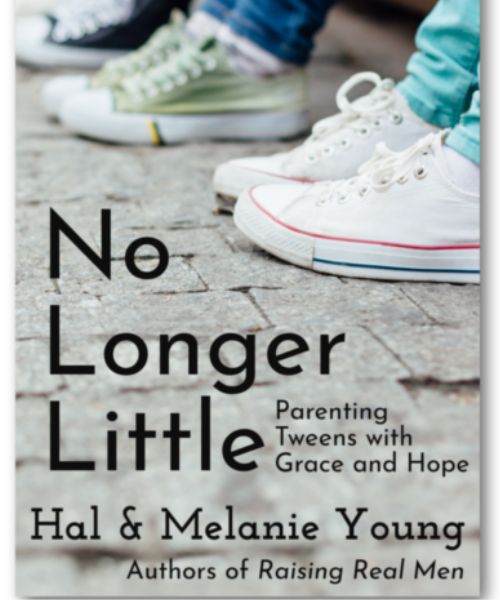
Parenting tweens—those magical years between childhood and adolescence—can feel like navigating a wild rollercoaster. Suddenly, your 9-year-old takes eons to finish math homework, the 11-year-old forgets your instructions mid-sentence, and the 13-year-old rides emotional turbulence like a pro.
What’s happening? Hormones surge, school becomes a battleground, and spiritual questions pop up unexpectedly. To address these issues, Hal and Melanie Young, seasoned parents of six real boys and two girls, offer practical guidance.
Key Takeaways:
They decode emotional meltdowns, address spiritual queries, and protect your relationship with your 8 to 14-year-olds. Lay a solid foundation now, and the teen years will be smoother. The book doesn’t promise perfection, but it offers grace and hope.
“No Longer Little: Parenting Tweens with Grace and Hope” is a lifeline for parents wading through the tween rapids. Hal and Melanie Young blend wisdom with empathy. Their insights resonate—whether you’re dealing with math tantrums or tearful mysteries. Yes, it’s faith-based, but the practical advice applies universally. As a parent, I felt understood and equipped.
3. Getting to Calm: Cool-Headed Strategies for Parenting Tweens + Teens
by Dr. Laura S. Kastner and Jennifer Wyatt
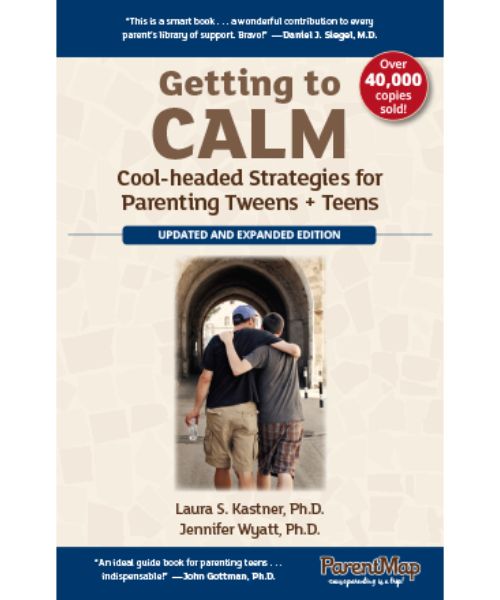
Imagine standing on the edge of a turbulent river, watching your tween or teen navigate the rapids. Their emotions surge like frothy waves, and you’re in the boat with them. Dr. Kastner and Wyatt toss you a lifeline—a guidebook filled with cool-headed strategies.
Key Takeaways:
14 Common Challenges: Picture your teen rolling their eyes or slamming doors. The book dives into these everyday dramas.
The Brain Unveiled: Peek inside your teen’s mysterious brain. It’s like exploring an uncharted cave with a flashlight. Science illuminates their behavior.
Real-Life Scenarios: Imagine sitting at the kitchen table, sipping coffee, and eavesdropping on parent-teen conversations. The authors dissect these moments, revealing how to defuse tension and build bridges.
Solutions in Your Toolkit: Whether it’s a sassy comeback or a worried parent’s plea, the authors equip you with practical tools.
“Getting to Calm” is a book where Dr. Kastner and Wyatt blend wisdom with humor. They respect teenagers’ complexity while acknowledging the struggles of parenting. This is again faith-based, but the advice transcends beliefs.
4. The Ultimate Guide to Raising Teens and Tweens: Strategies for Unlocking Your Child’s Full Potential
by award-winning educator Douglas Haddad
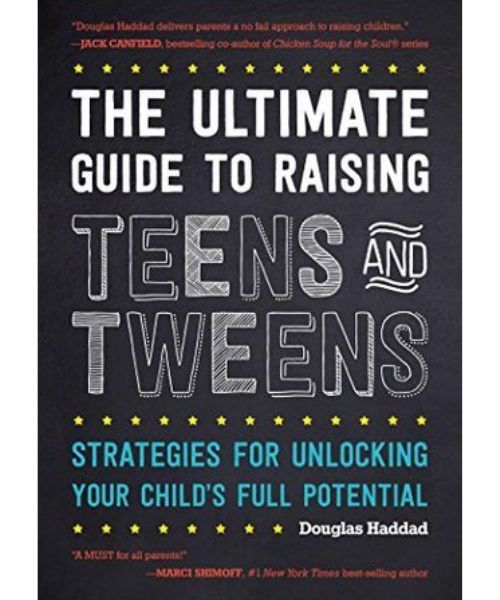
In this book, Dr. Douglas Haddad tosses you a lifeline—a guidebook filled with cool-headed strategies.
Key Takeaways:
Master Communication: Discover secrets for effective communication with your child. It’s not just about talking; it’s about truly connecting.
Tackle Behavior Problems: Learn techniques to stop behavior issues in their tracks. From eye rolls to door slams, Haddad deciphers the tween and teen code.
Motivate and Unlock Potential: Find strategies to motivate your child and unleash their brilliance. It’s like discovering hidden treasure within their developing minds.
Set Limits and Accountability: Understand today’s challenges—social media, peer pressure, academic stress—and handle them with your child. It’s about creating a safe harbor amidst the storms.
“The Ultimate Guide to Raising Teens and Tweens” is a lifeline for parents. Dr. Haddad blends wisdom with empathy. He respects teenagers’ complexity while acknowledging the struggles of parenting.
5. You and Your Tween: Managing the Years from 9 to 13
by Hollie Smith
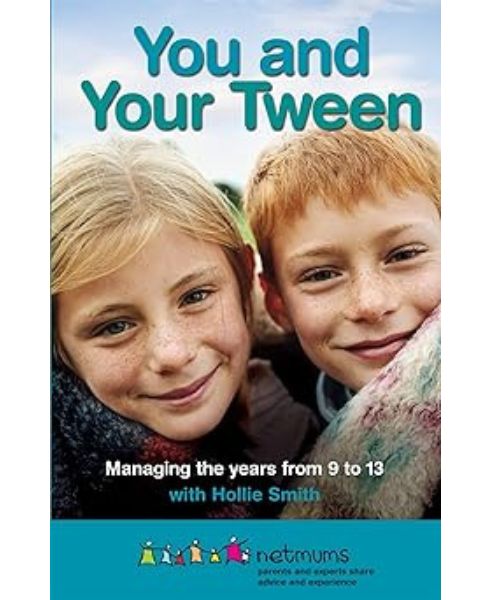
In this practical guide, Hollie Smith, along with insights from Netmums (an online community of moms), tackles the tumultuous tween years.
Key Takeaways:
Real-Life Wisdom: Smith doesn’t just throw expert advice at you; she wraps it in cozy anecdotes from fellow moms. It’s like sitting down with your best friend, swapping stories over warm tea.
Screen Time Sanity: Worried about your tween’s screen addiction? Smith offers practical strategies to strike a balance. From TikTok to Minecraft, she’s got you covered.
Puberty Unveiled: Brace yourself for the puberty rollercoaster. Smith demystifies it all—the voice cracks, the mood swings, and the sudden growth spurts.
Friendship Drama Decoder: Tween friendships resemble soap operas. Smith equips you with conflict-resolution tools. Spoiler alert: There’s no script, but you’ll survive the drama.
The Birds and the Bees Chat: When do you have “the talk”? Smith gently nudges you toward age-appropriate conversations.
But here’s the magic: It’s not just expert advice; it’s real-world wisdom from fellow moms. “You and Your Tween” is like having a seasoned mom whispering in your ear during those tween storms. Hollie Smith combines expert insights with practical tips from Netmums, creating a reassuring guide for parents.
So this book has practical solutions- from screen time limits to puberty talks, it’s all here. There’s a lot of real mom wisdom- Netmums’ collective experience adds authenticity. Moreover, the book is an easy read, no jargon is used, just friendly advice.
Overall, if you’re navigating the tween rollercoaster, grab this book.
6. From Tweens to Teens: The Parents’ Guide to Preparing Girls for Adolescence
by Maria Clark Fleshood
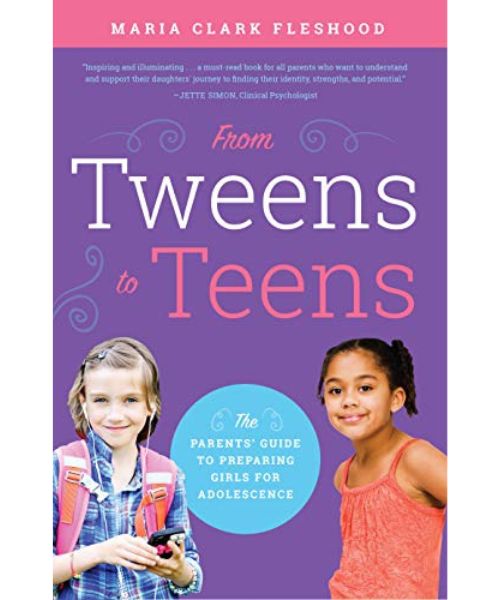
Maria Clark Fleshood, our guide, hands us a map—a blend of expert wisdom and mom-to-mom advice. This book talks about how ancient practices meet modern challenges.
Key Takeaways:
Rituals Matter: Fleshood nudges us to revive ancient traditions. Picture preadolescence (ages 8 to 13) marked with meaningful rituals.
Self-Discovery Journey: These years are like a cosmic scavenger hunt. Girls seek their identity, strengths, and superpowers.
Six Steps: Fleshood’s toolkit includes a six-step approach. Think of it as assembling a superhero suit—custom-made for your tween.
“From Tweens to Teens” is a thoughtful and insightful guide for parents navigating the delicate transition from childhood to adolescence. Maria Clark Fleshood draws upon global traditions and rituals to create a roadmap for supporting young girls during these transformative years. Her six-step approach provides practical advice, emphasizing self-esteem, communication, and understanding. Whether you’re a parent, guardian, or educator, this book offers valuable insights and actionable strategies. Highly recommended!
7. The Emotional Lives of Teenagers: Raising Connected, Capable and Compassionate Adolescents
by Lisa Damour
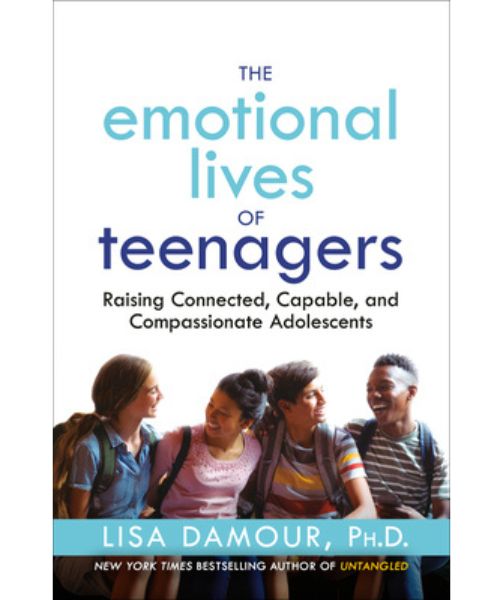
In “The Emotional Lives of Teenagers“, Dr. Lisa Damour provides parents with essential insights into understanding and supporting their teenagers during the tumultuous years of adolescence. The book covers normal emotional development, practical strategies for managing intense feelings, and ways to maintain strong connections with teens. Damour’s compassionate approach equips parents with tools to guide their adolescents toward emotional well-being and resilience.
Key Takeaways:
Understanding Normal Development: The book outlines what to expect during the normal course of adolescent emotional development and when it’s time to be concerned.
Embracing Feelings: Damour emphasizes that mental health isn’t solely about “feeling good.” It’s about having feelings that fit the moment, even if those feelings are unwanted or painful.
Supporting Teens: Learn effective ways to support teens who feel overwhelmed by their emotions. Help them become psychologically aware and skilled at managing their feelings.
Common Challenges: The book addresses common challenges faced during adolescence, including friction at home, anxiety, risky behavior, friendships, romances, and the impact of social media.
With illuminating real-life examples, Damour’s book equips parents with practical information to guide their teens through the transformative journey into adulthood. Whether you’re a parent, guardian, or educator, The Emotional Lives of Teenagers is an essential read.
8. How to Talk So Kids Will Listen & Listen So Kids Will Talk
by Adele Faber and Elaine Mazlish
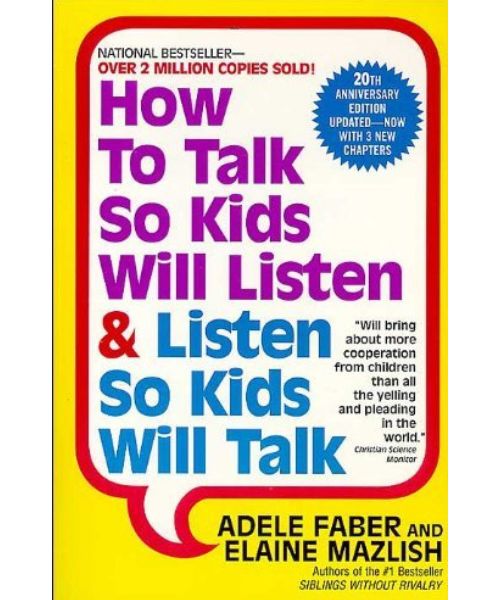
A classic communication guide that helps parents connect effectively with their children, including tweens. Learn practical techniques for active listening and problem-solving. In this timeless parenting bible, Faber and Mazlish offer practical techniques for effective communication between parents and children.
Key Takeaways:
You’ll learn how to handle your child’s negative emotions—whether it’s frustration, anger, or disappointment—without judgment. Express your own feelings constructively, engage your child’s cooperation, and discover alternatives to punishment. The book emphasizes the difference between helpful and unhelpful praise and provides conflict-resolution strategies.
Enthusiastically praised by parents and professionals worldwide, this down-to-earth approach makes relationships with children less stressful and more rewarding. Whether your child is a toddler or a teenager, these time-tested methods will help you build lasting connections.
“This parenting book actually made me a better parent.” — Lydia Kiesling, The New York Times
Faber and Mazlish’s insights are invaluable. Their respectful approach fosters understanding and empathy, making parenting a more fulfilling journey. Whether you’re a seasoned parent or just starting out, “How to Talk So Kids Will Listen & Listen So Kids Will Talk” offers practical wisdom that stands the test of time. Highly recommended!
9. The Whole-Brain Child: 12 Revolutionary Strategies to Nurture Your Child’s Developing Mind
by Daniel J. Siegel and Tina Payne Bryson
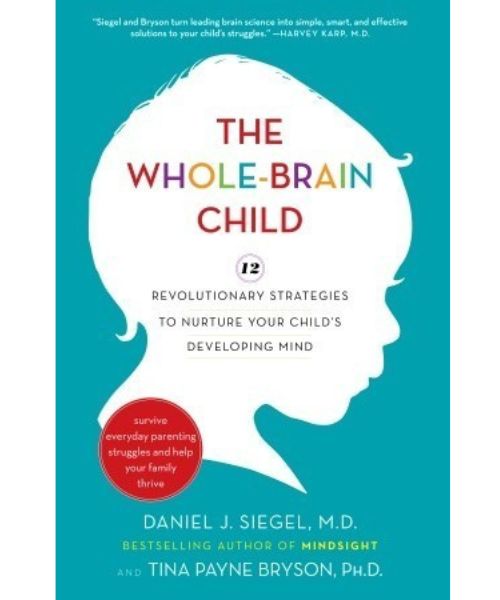
Although this book covers various age groups, its insights into brain development and practical strategies are highly relevant for parenting tweens. “The Whole-Brain Child: 12 Revolutionary Strategies to Nurture Your Child’s Developing Mind” is a parenting guide that deciphers the mysterious world of kids’ brains.
Key Takeaways:
Authors Daniel J. Siegel and Tina Payne Bryson offer practical strategies to navigate these brainstorms. From storytelling to understanding emotions, they help you turn meltdowns into growth opportunities. So, next time your little one acts up, remember: It’s not defiance; it’s brain science!
Imagine your toddler throwing a tantrum in a store, your preschooler refusing to get dressed, or your fifth-grader sulking on the bench instead of playing. It’s not a conspiracy; it’s their developing brain calling the shots!
Here’s the scoop: The brain has two parts—the “upstairs brain” (for decisions and emotions) and the “downstairs brain” (for instincts and emotions). In young kids, the emotional right brain often rules over the logical left brain. So, when your child acts out, it’s their brain’s way of saying, “Hey, I’m still under construction!”
“The Whole-Brain Child: 12 Revolutionary Strategies to Nurture Your Child’s Developing Mind” is a gem for parents navigating the wild terrain of child-rearing. Authors Daniel J. Siegel and Tina Payne Bryson, both seasoned experts in child development, serve up a feast of practical wisdom. The book is peppered with relatable anecdotes and practical exercises. You’ll learn to surf the waves of your child’s emotions, build resilience, and foster healthy connections. Whether you’re dealing with a toddler tornado or a moody tween, this book equips you with strategies that work.
10. Peaceful Parent, Happy Kids: How to Stop Yelling and Start Connecting
by Laura Markham
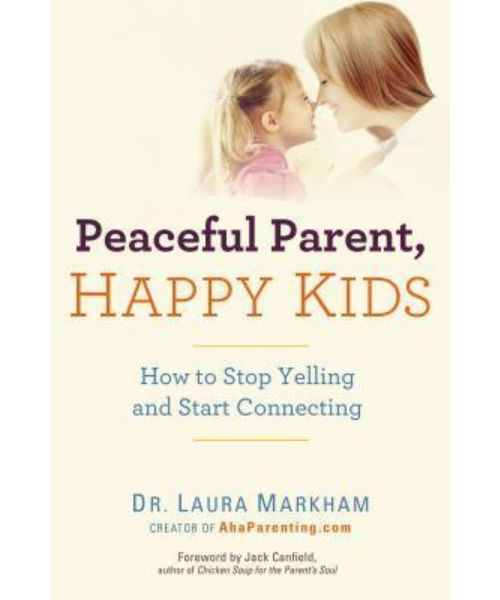
While not exclusively focused on tweens, this book provides valuable guidance on maintaining a peaceful and respectful relationship with your child during their pre-adolescent years.
“Peaceful Parent, Happy Kids: How to Stop Yelling and Start Connecting” by Dr. Laura Markham is like a soothing balm for frazzled parents.
Dr. Markham blends brain science with heart wisdom. She unravels the tangled threads of parenting stress and hands you a golden key: emotional connection. Imagine a world where tantrums don’t trigger your meltdowns. This book guides you there.
What You’ll Find in the Book:
Brain Basics: Dr. Markham deciphers the brain dance between parent and child. It’s like learning a secret language. The result? No more yelling matches; just heartfelt conversations.
Emotion Coaching: She teaches you to be an emotion whisperer. When your little one’s volcano erupts, you’ll respond with empathy, not eruptions of your own.
Discipline with Love: Forget punishment. Dr. Markham invites you to dance with limits. Set boundaries with kindness, not threats.
“Peaceful Parent, Happy Kids” is a compass for stormy parenting seas. Dr. Markham’s approach—fueled by research and sprinkled with compassion—transforms chaos into calm. You’ll learn to surf emotions, build bridges, and break the yelling cycle. It’s not about being perfect; it’s about being present. So, grab this book, sip your tea, and let the peaceful parenting journey begin!
Conclusion
As we wrap up our exploration of the Best Tween Parenting Books for Moms, remember that the journey of parenting is ever-evolving. These expert picks are just the beginning of your quest for knowledge and guidance in nurturing your tween. With each turn of the page, new insights await, offering fresh perspectives and empowering strategies. Dive into these books and embark on a transformative journey of growth and connection with your tween. And, we’d love to hear from you! Share your thoughts on which books resonated with you and which ones didn’t. Your feedback helps us curate even better recommendations for our community.
Frequently Asked Questions:
Do Parenting Books Help?
Parenting books can be valuable resources for gaining insights, strategies, and advice on navigating the challenges of raising children. While every parent’s experience is unique, many find that parenting books provide helpful guidance, practical tips, and reassurance during various stages of their child’s development. By offering expert perspectives and evidence-based approaches, these books empower parents to make informed decisions and foster healthy relationships with their children.
No book can provide a one-size-fits-all solution, and parenting is ultimately a personal journey shaped by individual circumstances and experiences. Therefore, while parenting books can be beneficial, it’s important to approach them with an open mind and adapt the advice to suit your family’s needs and values.
What Age Do Kids Calm Down?
The age at which children “calm down” can vary widely depending on individual temperament, developmental stage, and environmental factors. While some children may naturally exhibit calmer behavior from a young age, others may require more time to develop self-regulation skills. Generally, as children grow older and mature, they tend to become more adept at managing their emotions and behaviors.
However, it’s important to recognize that calming down is a gradual process influenced by factors such as consistent parenting, emotional support, and opportunities for learning and growth. Additionally, every child is unique, so there is no specific age at which all children will universally “calm down.” Instead, parents can focus on fostering a supportive environment and teaching coping strategies to help children navigate their emotions effectively as they continue to develop.


